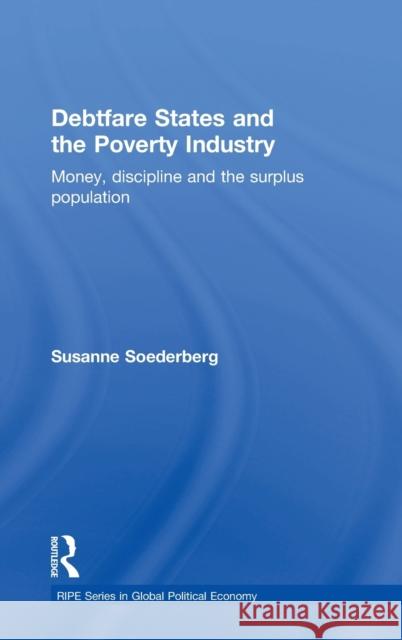Debtfare States and the Poverty Industry: Money, Discipline and the Surplus Population » książka
Debtfare States and the Poverty Industry: Money, Discipline and the Surplus Population
ISBN-13: 9780415822664 / Angielski / Twarda / 2014 / 302 str.
Debtfare States and the Poverty Industry: Money, Discipline and the Surplus Population
ISBN-13: 9780415822664 / Angielski / Twarda / 2014 / 302 str.
(netto: 672,22 VAT: 5%)
Najniższa cena z 30 dni: 680,04
ok. 22 dni roboczych
Bez gwarancji dostawy przed świętami
Darmowa dostawa!
This book examines the capitalist underbelly of financial inclusion by interrogating 'the financial'. In doing so, the book seeks to understand relations of power, inequality and exploitation that underpins the poverty industry, that is, the lucrative business of providing expensive forms of consumer credit to people, who can ill afford the interest and fees attached to it, nor afford to live without it. Drawing on a Marxian framework, it reveals how the poverty industry is inextricable linked to the social power of money, the paradoxes in capital accumulation, and the regulatory and rhetorical activities of states and international organizations. The analysis is concerned with explaining why and to what ends the consumer credit for the poor has become an indispensible feature of contemporary capitalism and its social reproduction under neoliberal forms of governance, including 'debtfarism.' The author examines the power and paradoxes of the poverty industry and debtfarism with several case studies ranging from payday and student loans in the United States to micro-lending and residential housing finance in Mexico.Providing a much-needed theorization of the politics of debt and credit with regard to the working poor in the United States and the wider implications of the increasing dependence of the poor on privately created money in the global South, this book will be of very strong interest to students and scholars of Global Political Economy, Finance, Development Studies, Geography, Law, History, and Sociology.











